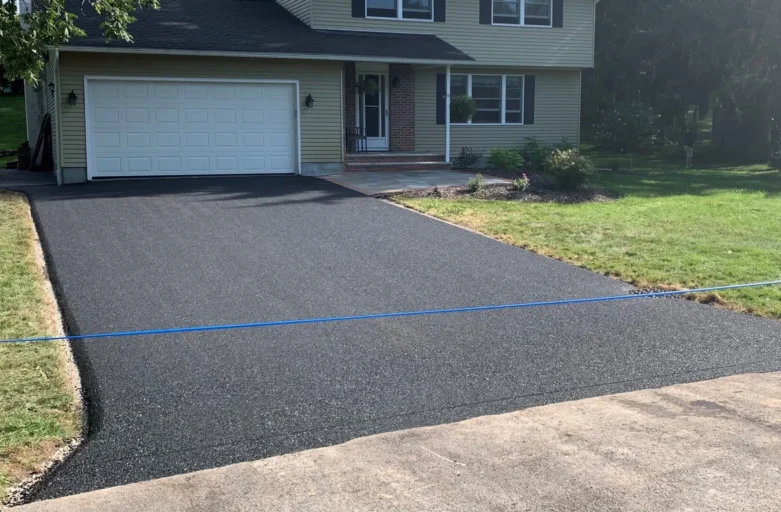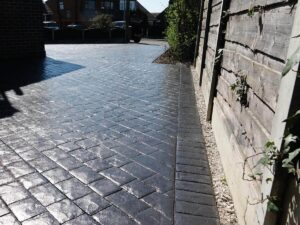There are several factors to consider when paving your driveway. These include cost, durability, maintenance requirements, and aesthetics. Choosing the right contractor is also important.
Proper subgrade preparation and adequate drainage are critical to the long-term performance of any paved surface. Standing water will damage pavement through freeze-and-thaw cycles and reduce the lifespan of all materials, including concrete and asphalt. Contact Long Island Driveway Paving now!
Whether your driveway is the primary entrance to your home or just a path between your garage and the street, it can be an important part of the overall curb appeal of your property. Choosing the right materials for your driveway is critical to its durability and aesthetics. Popular options include concrete, colored concrete, pavers, and gravel. Each material has its own advantages and maintenance requirements. When deciding on a material, consider the architectural style of your house and personal design preferences. The best choice is a durable, long-lasting material that will complement the look and feel of your home.
Laurel asphalt is a popular option for residential hardscapes because it offers a range of colors and is easy to use. It is also a cost-effective and environmentally friendly alternative to natural stone. Its permeable surface allows water to drain naturally, reducing runoff and the strain on stormwater systems. Moreover, it has a long lifespan and can be used in a variety of different applications.
Driveway paving is a significant investment that will affect the look and functionality of your property. It is essential to choose a material that matches your home’s exterior design and meets local environmental standards. A professional contractor can help you select the ideal paving material for your driveway. They will also be able to suggest additional landscaping features to enhance the overall appearance of your driveway.
Aside from the materials you choose, you should also pay attention to the color of your driveway paving. Sepia tones can give a traditional feel to your home, while greys can add a modern feel. You can even choose a pattern to create a unique and distinctive look for your driveway. For example, geometric circles can add a touch of elegance to your driveway.
Walkway pavers are another great option for your driveway paving. These pavers are made of interlocking units, so they won’t shift or break with time. The different shapes and colors of the individual pavers will also keep your driveway from looking monotonous. Moreover, these pavers are easy to replace or repair.
While a newly paved driveway may look beautiful, it’s important to choose the material that will be durable enough to hold up against regular use. There are several different options to consider, including pavers and concrete. The best one for your driveway will depend on the type of vehicle you have and how much traffic it will get.
Paver driveways are made of concrete that is molded into the shape of bricks. They are usually more durable than traditional clay bricks and can withstand the weight of cars and trucks. The lifespan of a paver driveway is typically 25 to 50 years. The main maintenance tasks of a paver driveway include refilling cracks and applying sealants every two years.
Concrete is a popular choice for paving projects because of its durability and low cost. It can be installed in a variety of ways, including using precast slabs or poured on-site. It’s also a good option for parking lots and commercial driveways because it can withstand the heavy loads of commercial vehicles.
However, it’s important to note that tree roots, ice and other environmental factors can damage a concrete driveway. If the concrete becomes cracked or chipped, it’s a good idea to have it repaired as soon as possible to prevent further damage.
Another great option for paving is asphalt, which is usually less expensive than concrete and pavers. It can withstand the weight of cars and trucks, and it’s easy to repair. It is susceptible to softening on hot days, though, and will need to be sealed every few years to keep it looking nice.
Asphalt is a common option for driveways, and it’s also a good choice for pathways leading to and from doors or sidewalks. It’s also available in a wide range of colors, so you can find a style that suits your home. You can even add raised block curbing to give your driveway a more formal appearance. However, it’s important to note that asphalt is not as durable as other paving materials, so it should be maintained regularly.
When a driveway is in bad shape, it can affect the look of your home and may also create a dangerous driving condition. Paving your driveway is a great way to increase the value of your property and improve your curb appeal. However, paving requires regular maintenance to keep it looking its best.
Pavement stains, oil spills, and debris can damage your pavement, reducing its lifespan and creating a hazard for pedestrians. Regular cleaning and inspection can help prevent these problems and extend the life of your driveway.
The construction of an asphalt driveway involves a complex process. First, the contractor must prepare the subgrade and survey the area for utility lines. Once this is done, the crew will start putting down the asphalt material. The crew uses hand tools to spread, tamp, and roll the asphalt. This ensures that the asphalt is applied evenly across the surface.
Once the asphalt has been laid, it must dry for about three days. During this time, it is important to keep cars off the driveway so that the surface can fully cure. In addition, the temperature should be above 80 degrees. If the temperature is too hot, the asphalt will begin to melt and deteriorate.
Asphalt paving is a costly investment, and it’s essential to take care of your driveway to prolong its life. It’s recommended to have a professional inspect your driveway every few years to avoid serious water damage and reduce the risk of pedestrian liability.
The most important factor in extending the lifespan of your asphalt driveway is proper drainage. Ask your contractor to install a two percent slope and pipe cross drains in order to direct standing water away from the surface. This will protect the materials from excessive moisture and abrasion. You should also use caution when applying deicing products to your paved surfaces. Rock salt is corrosive to asphalt, and it can break down the aggregate over time. Instead, try using potassium chloride or another non-corrosive product. It’s also important to remove snow and ice promptly after it forms.
The cost of paving your driveway will depend on the materials you choose and how much work is involved. In general, asphalt is less expensive than poured concrete. Its lifespan is also longer, so you may end up saving more in the long run. A good paving contractor will explain these differences to you clearly so that you can make an informed decision.
Before starting the paving process, contractors will sterilize the soil using a chemical treatment and grade it to make sure it is solid and level. They will also remove any trees and other plants that are in the way of constructing the driveway. In some cases, this work will require the use of heavy equipment like power graders and rollers. It’s important to keep in mind that these costs will add up.
Once the sub-base has been laid, the paving company will apply a layer of binder. This is a mixture of large aggregate and oil or tar that will give your driveway strength and structure. It’s crucial to get this layer down correctly so that the paving material adheres and doesn’t come off later on. It’s best to let the contractor do this work because they will know how to handle it properly and efficiently.
Finally, the top layer of asphalt will be laid down and smoothed. It’s important to get this layer down as flat and even as possible because it will harden quickly. This is when a roller truck comes in handy and can help you achieve the ideal look for your driveway.
Homeowners should only work with reputable paving contractors who are certified by their state’s department of transportation asphalt training programs or the National Center for Asphalt Technology. They should also offer a warranty and provide a detailed estimate and contract before construction begins. In addition, homeowners should avoid contractors that pressure them to pay in cash or ask for a deposit upfront. It’s also a good idea to talk with the contractor about drainage before construction begins. Standing water can damage paving materials and will lead to costly repairs in the future.

